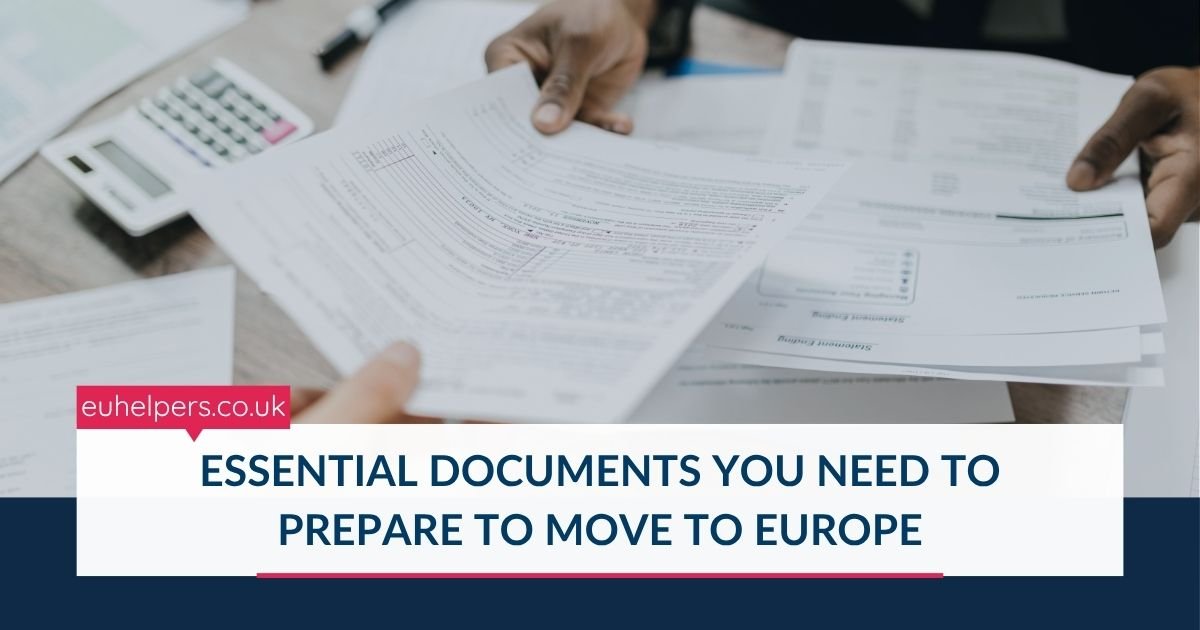Relocating to Europe—whether for work, study, or personal reasons—requires careful planning and thorough documentation. To ensure a smooth transition, it’s important to prepare all necessary documents well in advance. From passports and visas to health records and financial proof, having everything in order will help you avoid delays and complications during your move.
1. Passport and Visa
Your passport must be valid for at least three months beyond your intended stay in Europe. Depending on your purpose—such as employment, education, or family reunification—you’ll need to apply for the appropriate visa or residence permit.
What to Prepare:
-
A valid passport
-
Visa or residence permit application
-
Passport-sized photographs
-
Proof of accommodation
-
Letter of employment or admission (if applicable)
2. Personal Identification and Legal Documents
Bring original documents and copies of important personal records. These are often required for immigration registration, employment, or educational enrollment.
Essential Documents:
-
Birth certificate
-
Marriage certificate (if applicable)
-
Educational diplomas and professional qualifications
-
Criminal background check (as required by some countries)
3. Financial Documentation
Most European countries require proof that you can support yourself financially during your stay. This helps demonstrate that you won’t become a public burden.
Typical Requirements:
-
Recent bank statements
-
Proof of sufficient funds
-
Tax records or income proof (if self-employed)
4. Accommodation Proof
You’ll need to show where you’ll be staying upon arrival. This may be required both for your visa application and during border checks.
Accepted Forms:
-
Rental agreement or lease
-
Letter of invitation from a host
-
Hotel booking confirmation (for short-term stays)
5. Health and Medical Records
Health documentation is essential, especially for long-term stays. Many countries mandate proof of health insurance and may require vaccinations or medical history forms.
Key Medical Documents:
-
Proof of valid health insurance
-
Vaccination records
-
Medical history and immunization certificates
-
Copies of prescriptions for ongoing treatments or medications
6. Work-Related Documents (If Applicable)
If you’re relocating for a job, ensure all employment-related documents are in order. These may also be required to obtain a work visa or residence permit.
Work Documentation:
-
Employment contract
-
Work permit (if required)
-
Job offer letter from your employer
7. Other Important Documents
In addition to the core items, certain other documents may be useful depending on your situation.
Recommended Extras:
-
International driver’s license
-
Copies of all essential documents (stored digitally and physically)
-
Travel insurance
-
Legal papers such as wills, custody agreements, or power of attorney
Moving to Europe is an exciting step, but it comes with bureaucratic responsibilities. By organizing your documents ahead of time and verifying country-specific requirements through official embassy websites, you’ll make the transition smoother and more secure. Keep both physical and digital copies of everything, and consider consulting a relocation expert or immigration advisor if needed.

